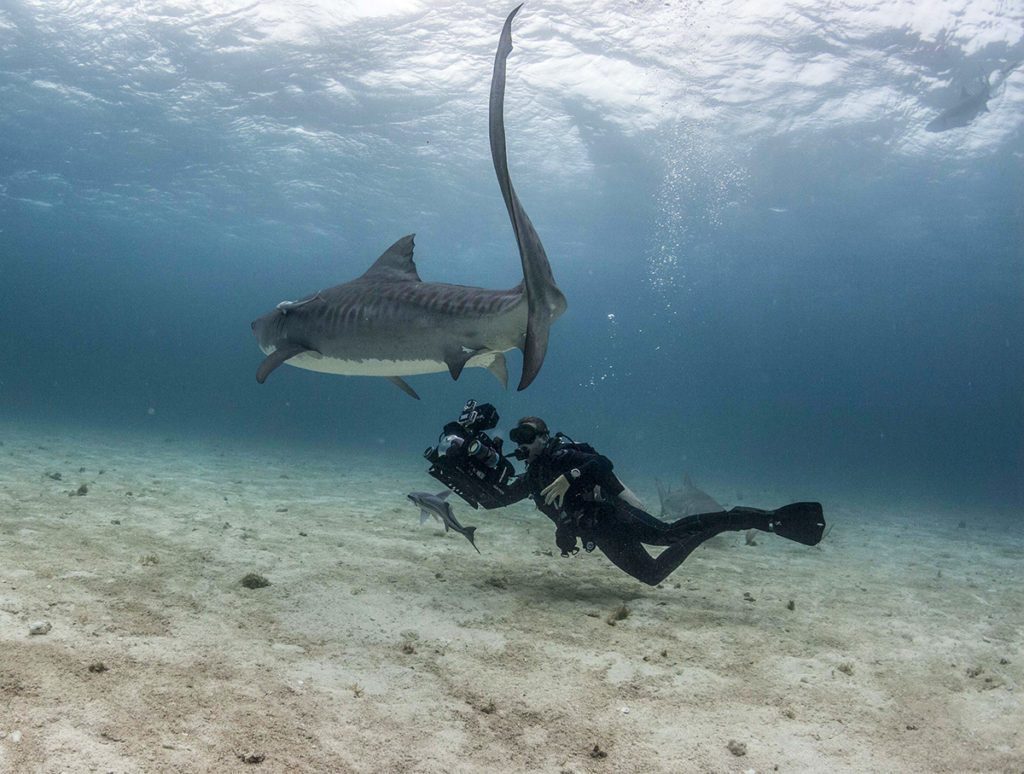Good etiquette is important in a social sport like diving. What follows are some diving Do’s and Don’ts to help ensure a fun and safe experience for divers of all levels.
Put Your Best Fin Forward
Scuba diving can be equal parts fun, adventure, relaxation, and improvisation. Get your dive off to a great start by having an open mind and taking steps to avoid unnecessary stress.
DO – Give yourself plenty of time to arrive and prepare
There is a saying among dive professionals: to be early is to be on time, and to be on-time is to be late. Plan to arrive 15 minutes early to ensure there’s time to find your destination, park, suit up, etc. Accidents can happen when predive preparations are rushed. By allowing extra time, you can prevent problems, relax and enjoy the dive.

DO – Be open-minded about the site
What may have seemed like a good location the night before may not be suitable the next day due to weather conditions or the skill level of your diving companions. Respect the recommendations of local dive experts, and don’t push for a dive site that may cause a safety issue for you or less-experienced divers.
DON’T – Talk during the briefing
Even if you’re familiar with the emergency procedures and hazards of a particular dive site, other divers may not be. Show respect by keeping quiet during the dive briefing.
Good Buddy Behavior
Every diver is different. Some like to take their time underwater, while others are more active. Open communication helps both members of a buddy team have a fun and safe dive.
DON’T – Skip the buddy check
Forgoing a buddy check means skipping an essential predive safety procedure. Even experienced divers forget to turn their air on, or improperly insert a weight pouch. By detecting problems topside, you can minimize troubleshooting underwater.
DO – Share hand signals and your goals for the dive
Ensure you and your buddy are speaking the same language by reviewing the hand signs you’ll use to signal out of air, indicate remaining air pressure, and when to turn around. Agree that diving isn’t a competition and divers consume air at different rates for a variety of reasons. Be honest about your dive style (inquisitive vs. active) and allow each person to share their expectations for the dive.
DO – Be self-sufficient
Buddy diving is a cooperative system built upon self-reliance and responsibility. Being a good dive buddy also means being a prepared diver. Don’t rely on your buddy to be your gear repair technician, compass and/or naturalist.
Scuba Equipment Best Practices
Being a courteous and safe diver means looking after your equipment. Using good diving etiquette can also help avoid damage to your scuba gear.
DO – Stow your equipment properly
Always lay your tank down to prevent a hazardous situation. Weights should be placed on the ground or in a stable location where they cannot slide on to someone’s mask, foot, etc. Place other dive gear under a bench, on an equipment mat, in a gear bag, or other confined space when not in use. Keeping your equipment clear of common areas and walkways prevents damage and prevents accidental trips and falls.
DO – Use the right rinse bucket
If the dive operation provides rinse buckets, be thoughtful about what you dunk and where you dunk it. No one wants to dip their regulator mouthpiece in the same water used to rinse a wetsuit. When rinsing defog from a mask, use a cup (or your hand) to scoop water into the mask instead of dunking it into the bucket and polluting the water.
Respect Marine Life and Other Divers
Photographers and new divers should take care when interacting with marine life. The underwater world is a fascinating place and divers may lose track of their body position and inadvertently impact the reef or other divers.
DO – Be mindful of your position in the water
Always be conscious of your proximity to the reef and other divers. Those who do not have good buoyancy control should establish a buffer zone between themselves and a sensitive bottom. By working to establish good buoyancy control, divers can conserve air and protect marine life.
DON’T – Let your camera dominate everyone’s dive
Shooting photos or video can cause a diver to be myopic – focused on getting the perfect shot and nothing else. Photographers and videographers should take extra care when interacting with marine life not to monopolize the best viewing position, or scare the creature away. The ocean is there for everyone, and a diver without a camera may want to see an interesting animal even if he or she does not want to photograph it. Also, not every diver likes being photographed. Signal that you’d like to photograph someone before taking their picture, or ask politely once you’re back on land.

DO – Take only photos, leave only bubbles
Minimize your impact on the environment by bringing a reusable water bottle and taking any trash with you. Do not collect “souvenirs” such as shells or artifacts.
Further Reading from DAN: 7 Mistakes Divers Make and How to Avoid Them